Don't Put a Label on Deathbomb Arc
- 26 June 2018
- ByNilina Mason-Campbell
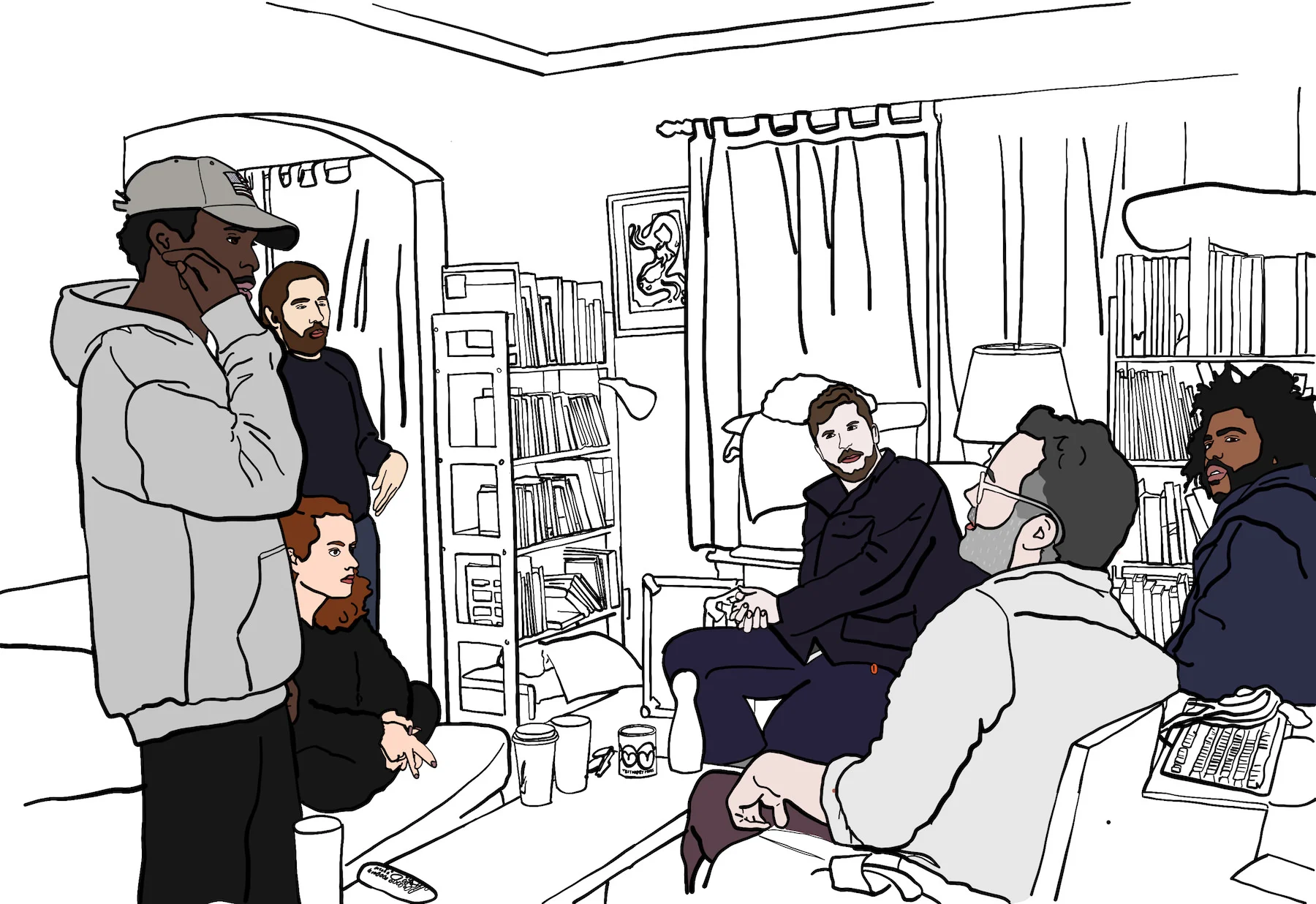
On an unusually gray day in Los Angeles, a wide variety of musicians have gathered around the living room of a Mid-City apartment. The artists trade laughter and wild conspiracy theories as they disappear to the home studio downstairs to collaborate.
They inhabit various corners and platforms of the experimental music realm, from rhythmic noise to lo-fi rap to atmospheric folk and several intersections in between and beyond. It’s an ambitious crossover event if there ever was one.
The mastermind for this meeting is Brian Miller. As the owner and operator behind Deathbomb Arc, he’s the thread that ties everyone together by way of his experimental label they all call home.
For twenty years he’s been releasing records, tapes, and even action figures through an online store. Its releases runs the gambit of genre - impossible to pigeonhole - yet make unusual sense in their highly curated form. Throughout the past two decades, Miller has managed create and navigate his own channels, while staying committed to the independent and experimental ethos he’s sought to foster with the label.
As the musicians - including JPEGMAFIA, Lana Del Rabies, and Daveed Diggs (of Clipping and Hamilton fame) - cycled up and down the staircase and filtered in and out of the room, we hunkered down to get into all things Deathbomb. We spoke with Miller about why the term collective might be more accurate than label, the value of social media, and how integral community is to his pursuits and success.
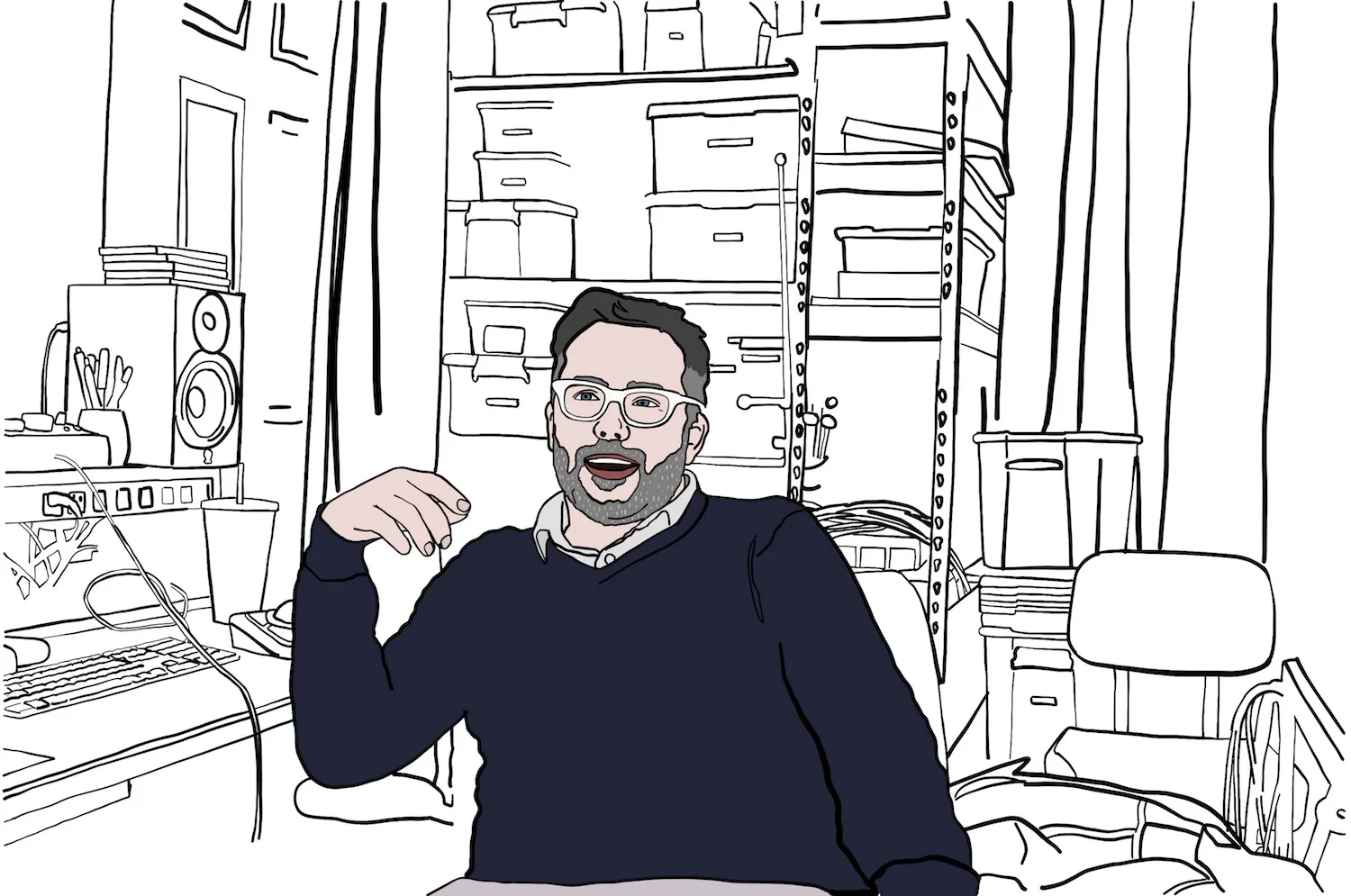
Illustrations by Nilina Mason Campbell
In your own words, how would you describe the label?
In the most basic way, I really like referring to it as an artist label and not a record label. I’m not focused on the record primarily. I’m focused on trying to figure out the best thing I can bring out in each artist I work with. Jonathan, whose house we’re at right now, the other day he told me something I’ve never really thought about. He said, “Brian, you’re a producer.” And I was like, “I am? What do you mean?” I had always thought it was someone who specifically gets their fingers into the music. But he was like, “That’s what you do. You try to bring out the best of each artist.” So it’s less a record label than a collective of people trying to see what we can do and make things happen. Often, that means helping them move on to something else.
As you were taking the label more seriously, you continued to put out a lot of left-field stuff. Was that ever something you kept in mind? Like how seriously can I take this considering how left-field it all is?
I’ve always believed that the type of acts I’ve seen that change the conversation in music are the left-field ones that people didn’t really believe in. But once they prove they’re going to be something everyone starts to clamor about it. Since they were the innovators they got to be in control of their careers really.
Not to compare the size of the bands we work with, but just to have been a teenager at the right time, when Nirvana broke through. Like, oh look, they’re totally different than what’s going on and they changed the entire conversation. Even in smaller ways, like Aphex Twin, and I feel like the entire history of hip-hop is that over and over again, like every couple years everything changes. That’s exciting to me. It’s part of a business formula that’s not invested in enough. That’s the part that’s usually considered “chance.”
But you totally can do it - I mean, I’m 20 years into it and that’s what I’ve been doing. I want to work with bands that are making something I’ve never heard before. I want something I can file between two different sounds in my record collection. Of course it doesn’t always pan out, but when it does those bands can have really interesting careers because they’re making up their own rules.
Can you give any specific examples?
Yeah, everything that’s going on with JPEGMAFIA right now is like that. I’ve been working with him for about a year and a half; he’s coming from this background where he loves something like Ghetto Boys and at the same time loves Throbbing Gristle. He has this really unique approach to what he would describe as “trash can production.” Instead of it being something where he does like a hardcore act, which I feel is the direction of a lot of the more aggressive and punk-leaning hip-hop acts have gone, he’s kept it true to his own personal spirit, like all the gangster rap he grew up with and still listens to.
I remember the first time I talked to him, even though his shit sounds so chaotic by most ears, he’s like “I’m just trying to be like Ice Cube.” And I feel that, I get that. At first, no one really cared at all. I went out to Phoenix with him and there were probably five people in the audience. Now it’s a year-and-a-half later and he’s playing all those sold out shows and doing all this crazy stuff and everyone seems to want to talk about him. I think part of that is because it’s so unique. I feel it’s actually easy to make unique or weird music but it’s hard to convince people to like it.
How do you convince people to like it? How do you grow an audience from five people to something sold out in that small period of time?
If I found an easy answer for that I’d stop doing the label. At this point it’s all exploration every time; it’s different with every act.
Do you feel like that’s essential? To do it as exploration?
Yeah, I like exploration a lot. I just want to have a new experience each time. I spend a lot of time talking with my artists asking, “Is this the best thing to put out? Does this reflect the way you want to be seen?” There are a lot of musicians I talk to who just want to play music and whatever randomly happens will happen. That’s not so interesting to me. Artists that have a vision have the best chance of doing well. It’s not guaranteed, but at least if you understand what you’re doing as an artist there’s a chance that other people will and it won’t just be some type of nonsense thing where people will be like, “I don’t know what that was.”
(laughing) Yeah, I feel like I can apply that to a lot of bands. But so how do you come across new artists nowadays? You were all living in a house originally together.
At this very moment I don’t look for a lot of new artists because I have such a full roster. In general, I’ve tried as much as possible throughout these 20 years to pay attention to what people are posting are sharing with each other; I’ve definitely worked with acts where I just saw someone tweet something.
There’s this guy I’ve worked with a bunch - Senior Benedict the Moore - and I found him just because he tweeted a link of his music to Clipping. That was when nobody really cared much about them, so I was like, “Who likes Clipping so much that they want to share their music with them?” So I checked it out and realized he was really talented. Daveed came over to my house and I told him to check out this guy who wants you to hear them. I knew that they probably missed that because they don’t love social media as much as I seem to be obsessed about it. He was like, “Damn, this guy is really good,” and next thing I knew they were working together.
I try to not be too closed off on that, but it’s hard. At moments like this when something like JPEGMAFIA is bringing a lot of attention to the label, I can get overwhelmed with demos and things like that. So I have to slow down. But I don’t know, I just try to trust my taste with whatever I hear.
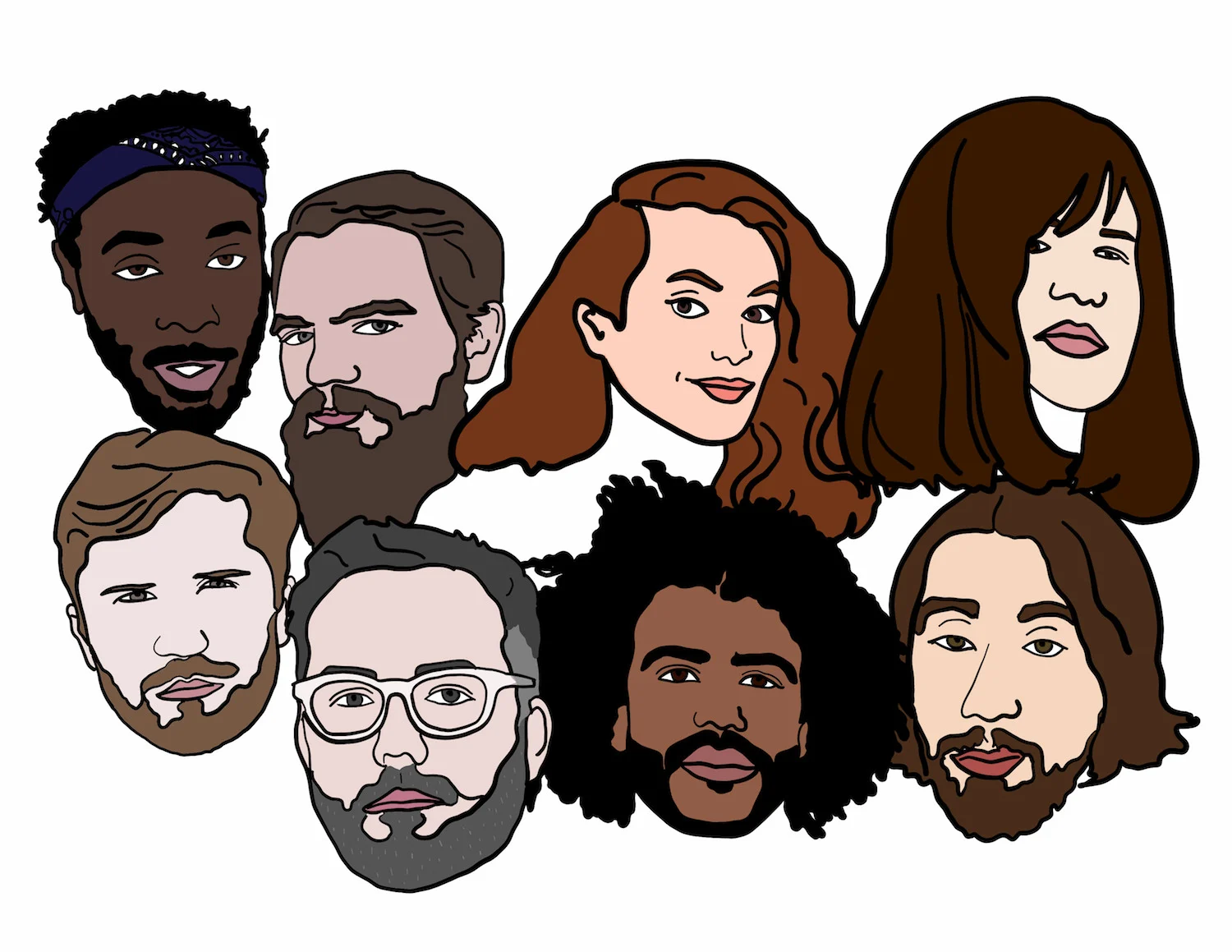
In clockwise order: JPEGMAFIA, Jonathan Snipes, Lana Del Rabies, Paloma Parfrey, Miguel Mendez, Daveed Diggs, Brian Miller, William Hutson
You talked a little about social media. Some people are doing it because they have to, but you genuinely like it?
Yeah. I mean I wouldn’t have a business without it. I wouldn’t have a business without the internet and I wouldn’t have a booming business without social media. I’m not good at schmoozing. I don’t like to go out to clubs and talk to a million people and stuff like that. I ran the record label for years without a website in the ‘90s, then around 2000 a friend told me to get a website and I started getting sales.
I hear a lot of people complain about social media because of the emotional work that it entails. For me, I’m just going on there to run my business, so it’s not that big a deal. I know exactly why I’m there and can get in and out.
I’m not worried about it so much.
Who’s buying physical copies of music today?
The most devoted fans. People that are going to invest into the object that has an almost sacred feeling to them.
There are a lot of people that buy vinyl and cassettes and never listen to them. That actually happened the other day. A guy tweeted at me talking so proudly about his autographed copy of a JPEGMAFIA cassette and was like, “I will never play it.” I'm wondering if I should retweet it. It was like he was saying he doesn’t appreciate it correctly. But then it’s like, he can totally hear it. And he heard it sounding better than the tape. So why do I care? This person has such reverence for it. So it’s good.
As long as we have physical bodies, we’ll still like physical things. But they don’t have to be things that carry music on them. I’m working on something right now that will be an action figure of one of the musicians I work with, sent with a download code.
That’s fun! When do you think that will come out?
I’m learning how to make a resin cast on my own. At this point they don’t look good enough. They’re all aerated with holes and stuff. I’m hoping by the end of the year.
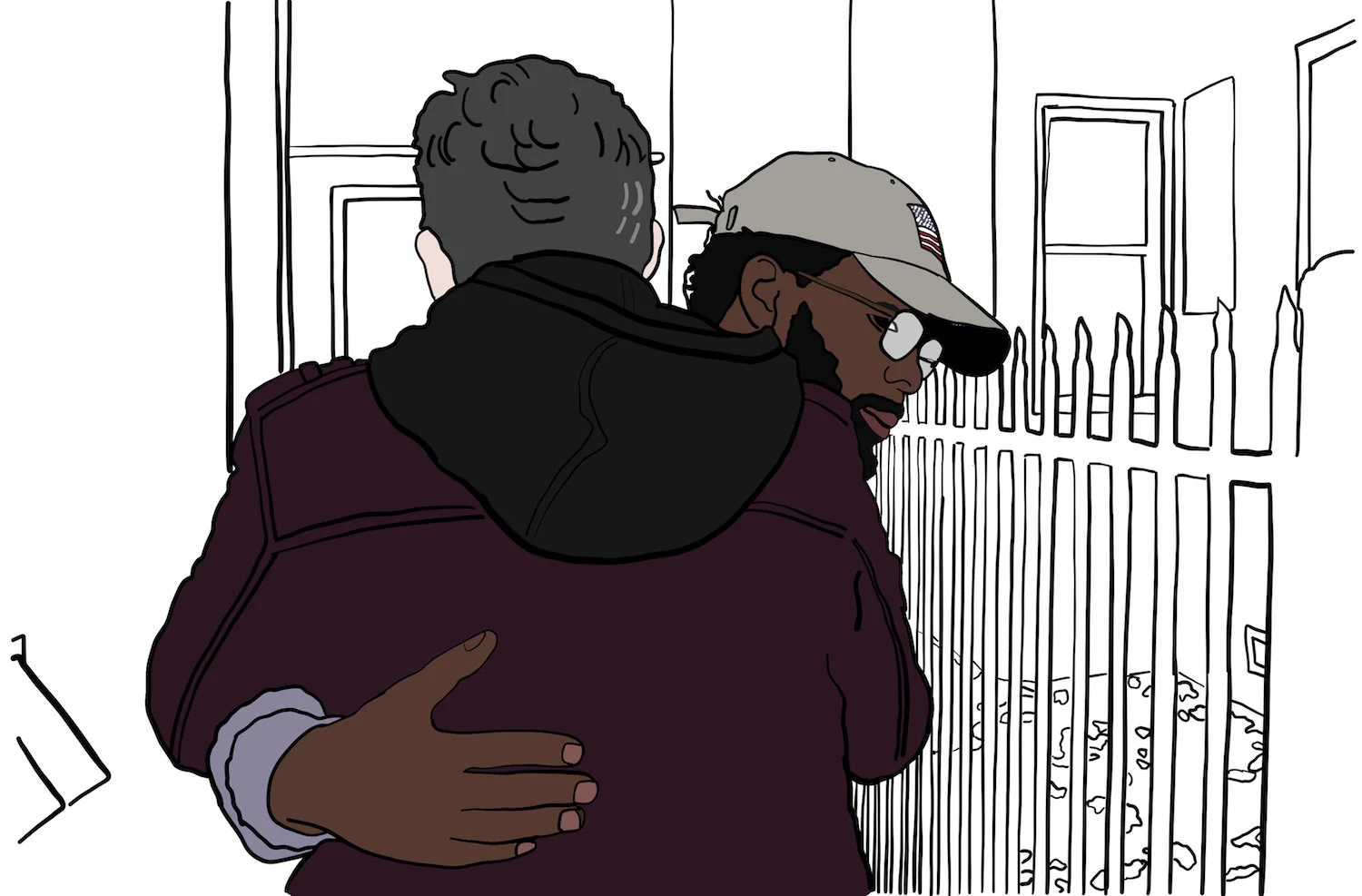
JPEGMAFIA and Brian Miller
I see what you retweet - the things people have tweeted to you and Deathbomb artists - and it seems like such there’s a strong sense of community. Do you actively cultivate that or did it grow organically?
I’ve always liked the idea that I can be friendly with the audience for Deathbomb. Even if not directly one-on-one, but the idea that collectively that everyone that likes Deathbomb is a friendly entity.
Why do you choose to refer to the label as a collective?
It tends to be that the acts I end up working with the longest - more than just one release - are ones that get genuinely excited to be on the label. Not only my own relationship with them becomes very involved, where we talk on the phone a lot about what they’re doing as an artist and their work, but also personal stuff and lives. That matters a lot for artists just coming up - a lot of challenges of getting a record out often have a lot to do with a lack of resources, or time, or emotional struggles. If I care about the music and I care about the artist, it means I care about those things, too.
Because I have that relationship with these different artists, they’re all friends. Things happen like today where we’re all together, why wouldn’t I introduce one of my friends to another friend? I like these people.
The release of this label posse comp, which has a bunch of collaborations between artists, shows that having that approach creates whole new works of art that no one would have anticipated. People like Jonathan and Miguel come together to make stuff. JPEGMAFIA and this goth group Gripped did a track together on it.
It’s not like we all live together; it’s not a co-op. Nobody is contracted to have to work with each other. It’s not like Motown where one person is making a song and forcing everyone to do their version of it, then we vote for the best version and release it. All of that is way too formal. It just a core group of people that all like each other and hang out, which I haven’t seen as much in other labels.
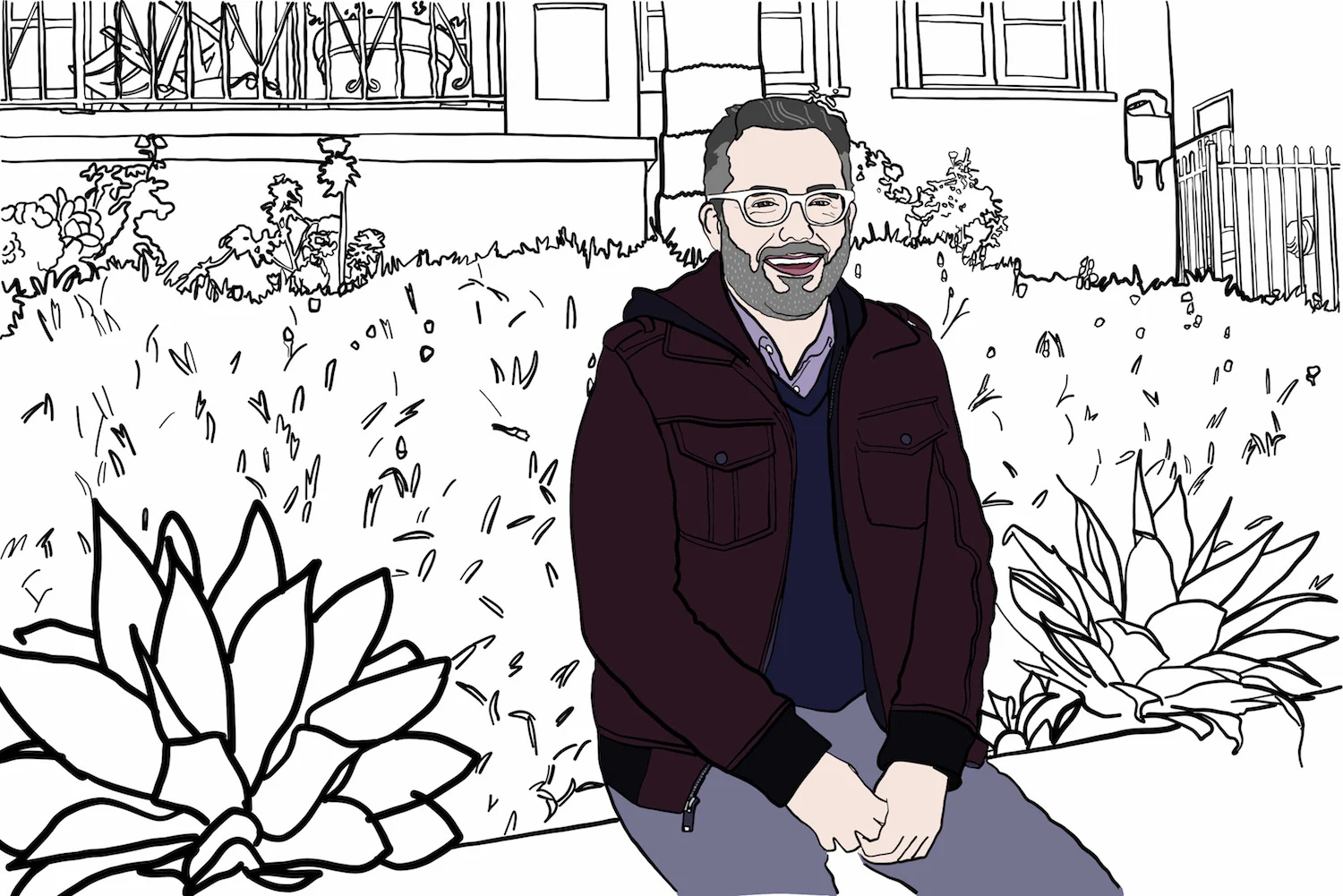
Brian Miller
Looking at the next 20 years, do you have specific goals? Or any achievement in mind? Or something you want to continue?
I think a day like today, where there are people I’ve known for literally decades hanging out with people I’ve known for a year, and we all get together and have fun, shows me there are certain things the label has accomplished that I never could have foreseen coming. I hope that still exists 20 years from now. That I can still get together with a group of people, probably even more people then, and be like, “Damn, we’ve known each other for 40 years, and I’ve known you for two months,” and we’re all just getting along. People 60 years old and 25 years old all still sharing ideas and learning from each other. I think that would be great.
26 June 2018
Words by:Nilina Mason-Campbell
- Share